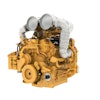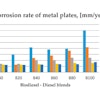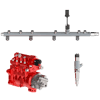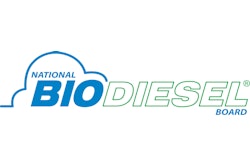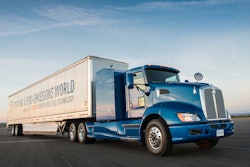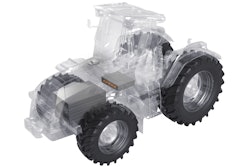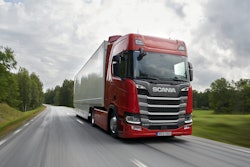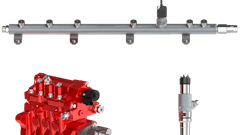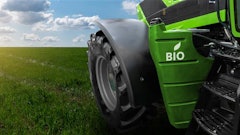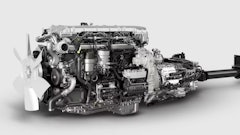
A wide range of organizations have announced a partnership to conduct a year-long validation project of biodiesel technology to demonstrate its viability in real-world, high-mileage fleet applications.
Under this partnership, five trucks owned by ADM will be outfitted with Optimus Technologies’ Vector fuel system, a technology that enables diesel engines to run almost entirely on sustainable biodiesel. The trucks will be used in daily fleet operations for a yearlong period, with each vehicle anticipated to travel 160,000-180,000 mi. and reduce up to 500,000 lbs. of CO2. Advanced monitoring protocols will compare the performance and results of the new technology with five other trucks comprising a control group operating on conventional diesel. All biodiesel used in the project will come from ADM’s refinery in Mexico, MO.
While nearly all diesel engine manufacturers support at least 20% biodiesel (B20), the Optimus Vector System is designed to allow conventional diesel engines to run on 100% biodiesel in a wide range of climates. The system is already in use in shorter-mileage, local fleet applications such as distribution and waste removal. This new project is designed to evaluate its use for longer-haul over-the-road fleets, potentially opening a pathway to significantly higher volumes of biodiesel in the U.S. truck fleet.
In addition to ADM and Optimus, this project is supported by the American Lung Association, the National Biodiesel Board (NBB), the Illinois Soybean Association, and the Missouri Soybean Merchandising Council.
“Our commitment to global sustainability includes reducing emissions, and we have a great opportunity here to validate a technology that could, in theory, expand the use of environmentally-friendly biodiesel in diesel trucks by five-fold or more,” says Steve Finn, ADM’s Vice President for Trucking. “Going forward, we expect over-the-road trucking miles in the U.S. to continue to increase, so we have an opportunity to use innovative technologies to multiply the environmental and economic benefits of biodiesel. That’s what we are working towards together in this new partnership.”
“Biodiesel blends have been utilized successfully in millions of miles of real-world applications across the diesel sector over the last two decades, but this project is especially exciting as more fleets look to take it to the next level,” says Kaleb Little, Director of Communications for the National Biodiesel Board. “Biodiesel’s recognition as a low-carbon fuel option has fleets pushing the envelope, increasing their use of even higher blends, B20 all the way to B100, and this technology makes it easier than ever for users to do just that.”
“We’re excited to announce this partnership with ADM and commend their commitment to sustainability and leadership in both the biodiesel and transportation sectors,” says Colin Huwyler, CEO of Optimus Technologies. “Trucking is the backbone of the American economy and carbon emissions from transportation continue to rise. Optimus’ technology coupled with ADM’s fuel provides heavy-duty fleets an immediate pathway to reduce these emissions over 80%. While the promise of heavy-duty fleet electrification is still decades off, this project demonstrates the ease, low cost, and efficacy of integrating biodiesel into existing fleet equipment and operations.”
